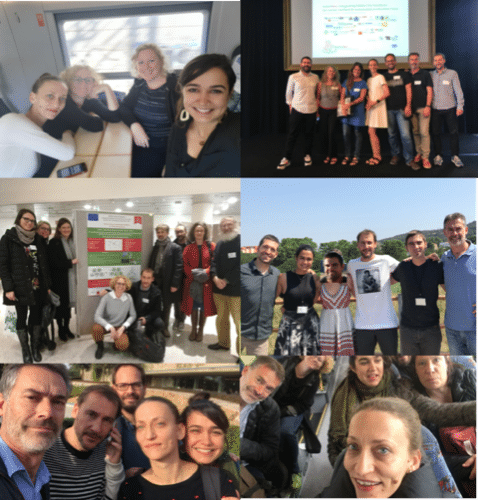Workshop II – project development in the urban neighborhood
The non-public workshop took place on the 7th of June 2021. The main aim was to support the implementation of edible city solutions in Berlin’s social disadvantaged neighborhoods. This half-day event was aimed at the members of the neighborhood management program in Berlin.
The workshop benefitted from the inputs of Simone Antony (District administration Marzahn-Hellersdorf) and Annette Biernath (degewo AG).
The two speakers gave a quick overview and clarified questions about the implementation of different ECS in cooperation with the district administration or housing companies.
Afterwards, an exemplary ECS project was planned in small groups using the design thinking method. One group focused on “participation and integration through edible city solutions”, while the other group dealt with “strengthening resilience through edible city solutions”.
At the end, participants gave short descriptions of problems and challenges in implementing edible city solutions and citizen participation in their neighborhoods. These are valuable impulses for the upcoming workshop in August.


